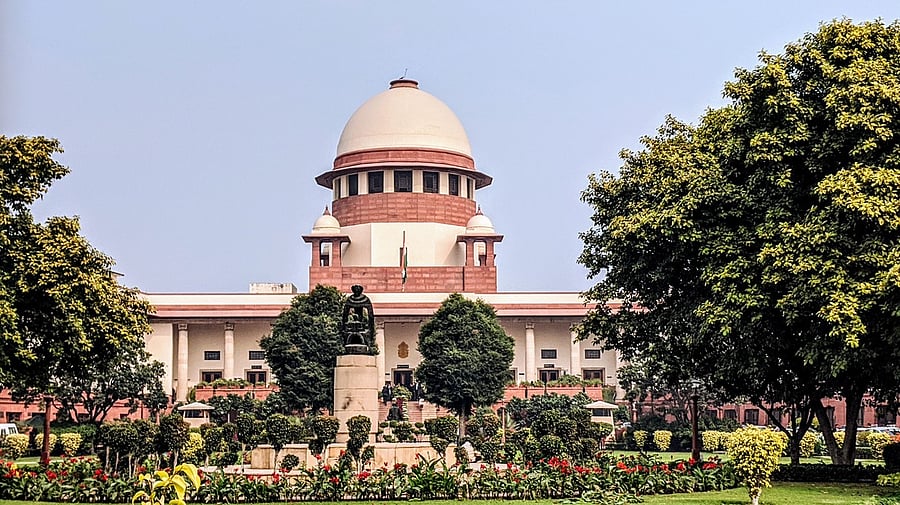
The Supreme Court of India.
Credit: iStock Photo
Chennai: Dravida Munnetra Kazhagam (DMK) on Monday challenged the October 27 notification by the Election Commission of India (ECI) undertaking a Special Intensive Revision (SIR) of electoral rolls in Tamil Nadu by terming the exercise "unconstitutional, arbitrary, and a threat to democratic rights".
The petition by R S Bharathi, DMK’s organising secretary, was filed after a multi-party meeting on Sunday decided to seek legal recourse as it accused the ECI of failing to listen to their arguments. Besides calling the exercise “illegal”, the DMK has been maintaining that SIR in November-December during the northeast monsoon season would only disenfranchise people as many won’t be able to participate in the exercise.
In the petition, the DMK termed the October 27 notification as violative of Articles 14, 19 and 21 (right to equality, freedom of speech and right to life) and other provisions of the Constitution and the Representation of People Act and the Registration of Electors Rules, 1960. The plea is likely to come up for hearing during this week even as the SIR will begin across Tamil Nadu on Tuesday.
“Issue a writ of certiorari calling for records pertaining to order dated 27.10.2025 of the Respondent (ECI) directing that a Special Intensive Revision be conducted in the State of Tamil Nadu,” the petition said.
It argued that SIR orders, if not set aside, will arbitrarily, unjustifiably and illegally disenfranchise lakhs of citizens from electing their representatives, thereby disrupting free and fair elections and democracy in the country, which are part of the basic structure of the Constitution.
“Because universal adult suffrage, constitutionally guaranteed under Article 326 of the Constitution of India, as the foundational basis of free and fair elections, is integral to the democratic framework of the Republic. Therefore, wrongful exclusion from electoral rolls strikes at the very core of this guarantee and directly infringes Article 19(1)(a) of the Constitution of India,” the DMK contended.
The party also argued that SIR is a clear case of constitutional overreach as Article 324 of the Constitution of India, while vesting the ECI with superintendence and control over elections, operates only in fields unoccupied by legislation.
“The preparation and revision of electoral rolls are comprehensively governed by the RP Act and the 1960 Rules. By mandating an unprecedented de novo verification of voters based on an arbitrary 2002/2005 cut-off date, the Respondent has acted in violation of, rather than in conformity with, the statutory framework, thereby seeking not to supplement but to supplant it,” the party added.
It said a Special Summary Revision was conducted in Tamil Nadu between October 2024 and January 6, 2025, which addressed issues such as migration, death and deletion of ineligible voters.
“The existing electoral roll in Tamil Nadu was updated and published on 06.01.2025 under Special Summary Revision and has been continuously updated since then,” it added, arguing that a SIR was unnecessary and would only lead to confusion.